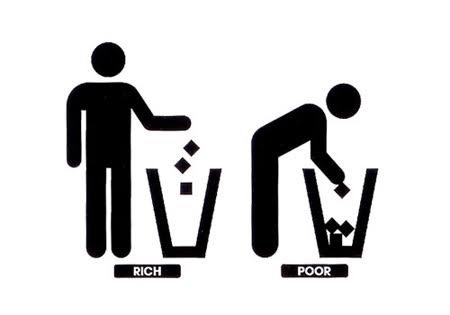Wealthy vs. poor: Habits that differentiate them
2 min read
Wealthy vs. poor Habits
When it comes to financial success, the disparity between the wealthy and the poor often boils down to more than just monetary differences. Beyond the apparent wealth gap, distinct habits are crucial in shaping the destinies of individuals. Renowned author Stephen R. Covey once said, “The key is not to prioritize what’s on your schedule, but to schedule your priorities.” The notion holds significance when dissecting the habits that differentiate the wealthy from the poor.
Four habits that differentiate wealthy and poor
Let’s look at how these four habits differentiate between the wealthy and the poor.
- Time management
A standout disparity lies in the approach to time management. Wealthy individuals, often driven by a results-oriented mindset, meticulously plan their days. They adhere to a schedule that aligns with their priorities to ensure that each moment contributes to their long-term goals.
On the contrary, poor individuals may find themselves entangled in the present urgencies and need a strategic plan for the future. Rich focus on tasks that are important but not necessarily urgent. In contrast, the financially struggling often get bogged down by pressing and essential tasks. It leaves little room for long-term planning.
- Continuous learning
Successful individuals understand that knowledge is dynamic and that staying abreast of trends and innovations is crucial. They invest time and resources in acquiring new skills and reading books that broaden their horizons.
In the world of productivity, the wealthy recognize that personal development is an ongoing journey. Commitment to learning enhances skills and positions them as leaders in their respective fields.
- Financial discipline
Wealthy individuals exhibit remarkable financial discipline, significantly contributing to their success. They adhere to budgetary constraints and save consistently. This disciplined approach to finances empowers them to weather economic storms and capitalize on opportunities.
Conversely, financial indiscipline often characterizes the habits of people with low incomes. It can be in the form of impulsive spending and accumulating debt. The lack of a solid financial plan can create a perpetual cycle of economic instability. Discipline in all aspects of life, including finances, is critical.
- Networking and relationship-building
Networking is a powerful tool that the wealthy leverage to propel themselves forward. The rich understand the significance of cultivating relationships and surround themselves with inspiring individuals. Wealthy individuals are often part of professional networks and communities that provide valuable opportunities.
Wealthy people understand that collaborative efforts often lead to more significant achievements than individual endeavors. On the contrary, poor individuals may need access to such networks. It limits their exposure to opportunities and hinders their professional growth.
Bottom line
In dissecting the habits that differentiate the wealthy from the poor, it becomes clear that productivity plays a vital role in shaping financial destinies. Cultivating habits like time management, continuous learning, and effective networking can help individuals bridge the gap between financial struggle and prosperity. The journey towards wealth is not solely defined by monetary gains but by the habits that drive sustained success.







